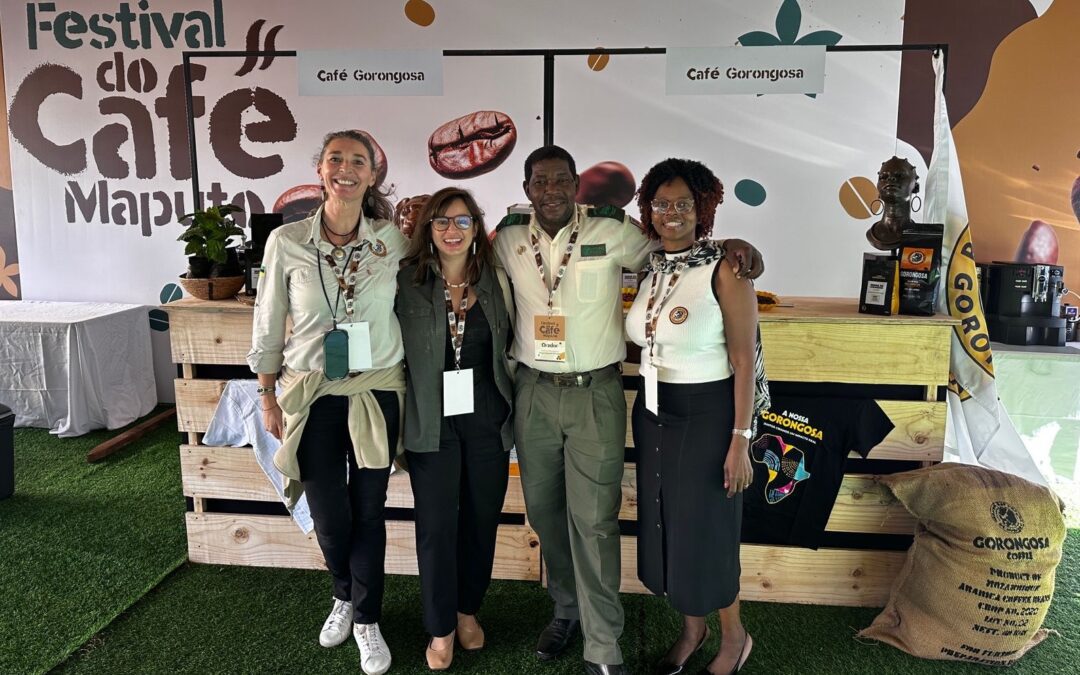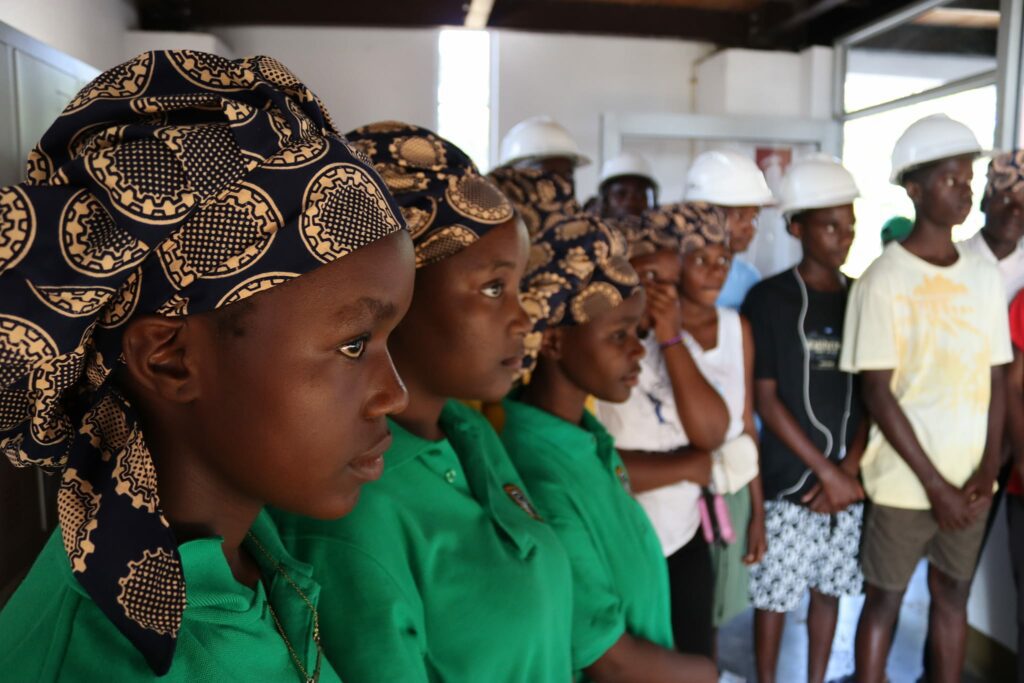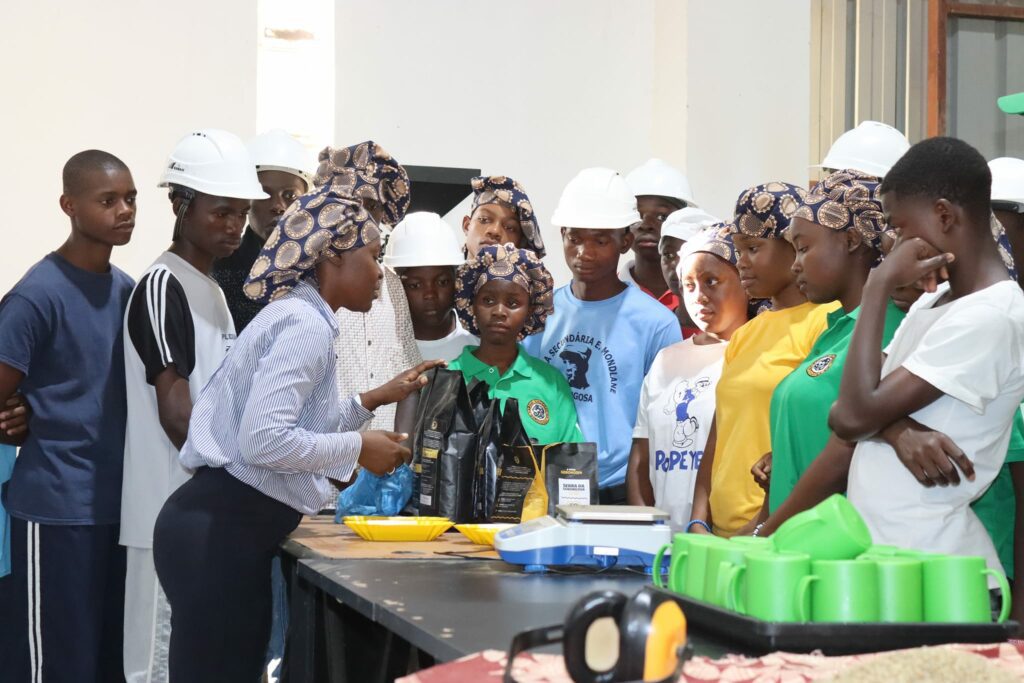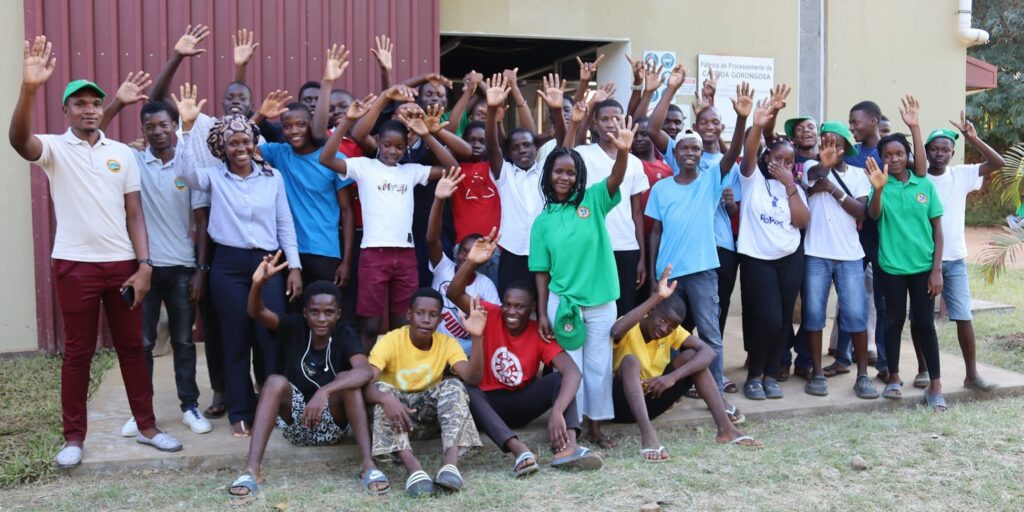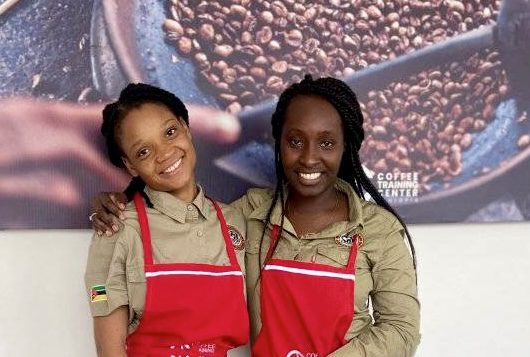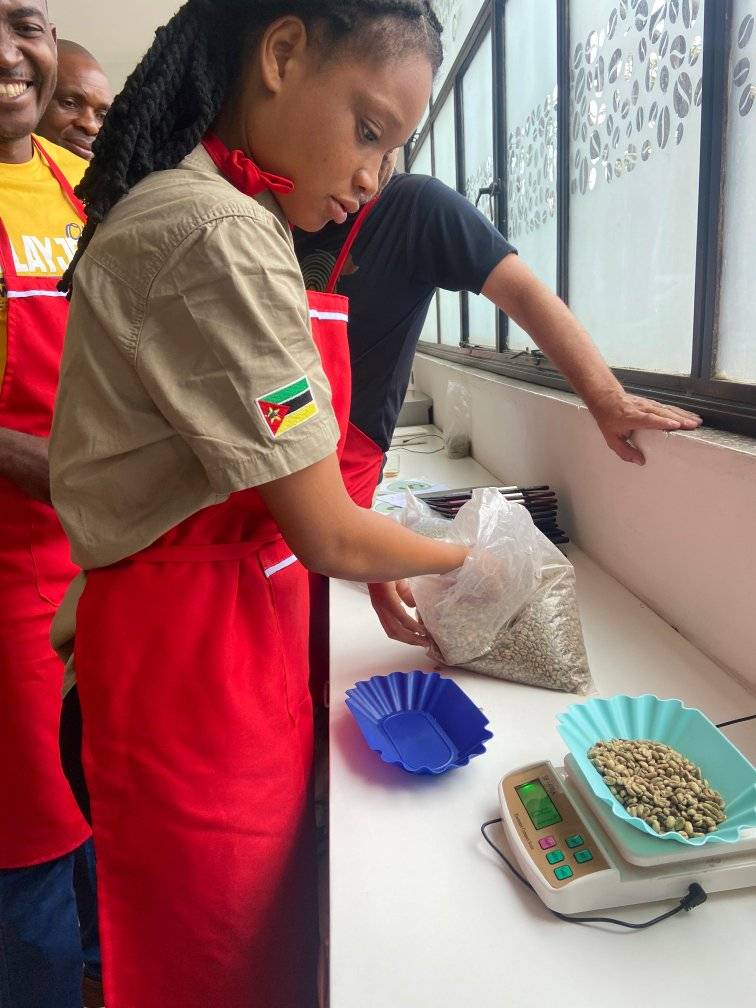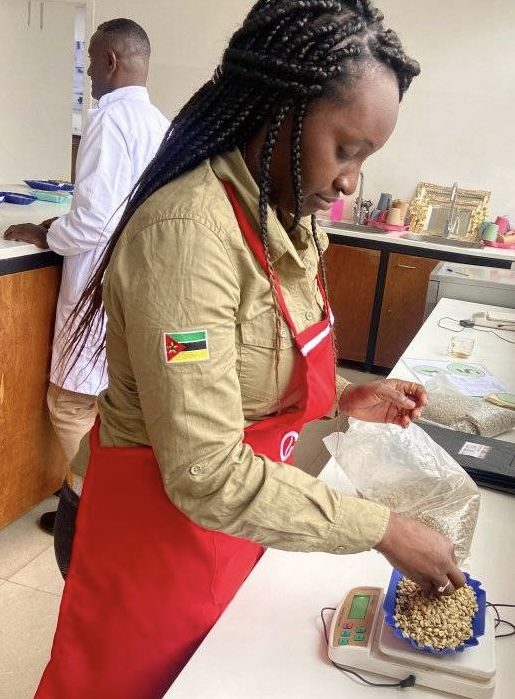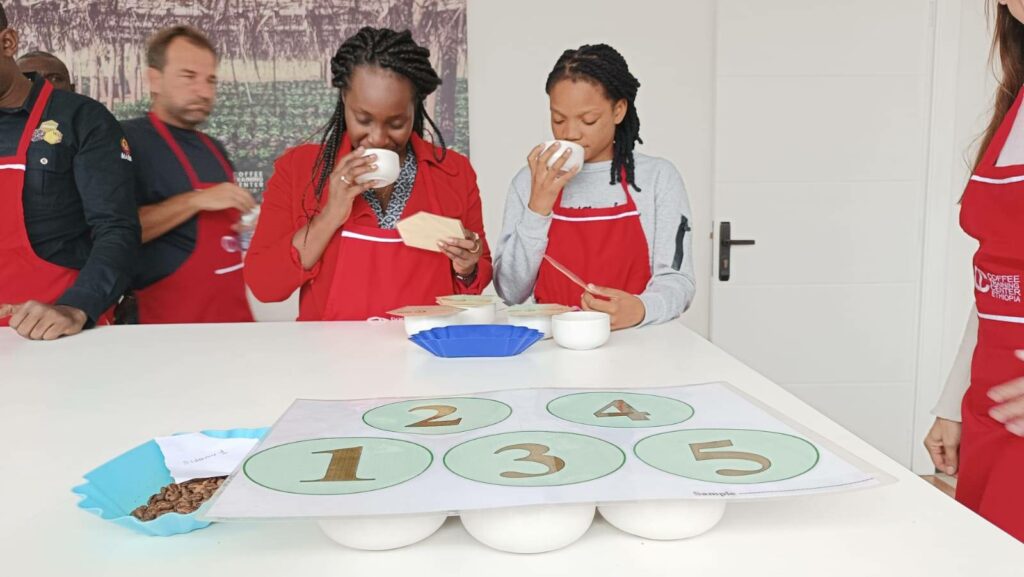Text/fotos by Janado Nazare Cher, Samo Jossefa Samo and Larissa Sousa
At least 2.5 billion cups of coffee are consumed every day in the world and 25 million families are involved in coffee production.
More than 120 tons of A Nossa Gorongosa coffee ‘cherries’ were purchased from local coffee farmers in 2023, and local producers exported nine tons of green coffee to the South African and UK markets.
From the day the program was initiated, more than one million coffee plants have been planted across 243 hectares adjacent to Gorongosa National Park in partnership with over 1,000 smallholder farmers (40% are women).
A Nossa Gorongosa is currently one of 15 different registered coffee companies in Mozambique and one of only six national brands to reach the standard required to export coffee to other countries, a fact that was not lost on the attendees of the Maputo Coffee Festival which was attended by a delegation of representatives from Gorongosa National Park.
The Maputo Coffee Festival brings together coffee industry experts, producers, and enthusiasts for the purposes of promoting dialogue and to learn, taste and enjoy the flavors of coffee.
Students gain insight into Gorongosa Coffee production.
Clube Búfalo members from Escola Secundária Eduardo Mondlane toured the Gorongosa Coffee factory in June.
The visit allowed the students to gain insight into the inner workings of coffee production — from planting to harvest, roasting and final tasting — with an emphasis on the economic and environmental significance of coffee production in the Gorongosa National Park region.
Students learned about coffee cultivation, bean processing techniques, the impact of temperature and time on coffee quality, the importance of packaging for freshness, and the nuances of coffee flavors and aromas through tasting sessions.
This hands-on experience complemented classroom learning and fostered a deeper appreciation for the details involved in coffee production.
Cultivating leaders in coffee production, quality control and compliance.
Juleida Zulfa Carlos, a coffee production technician, and Edna Berta Catondo, a coffee quality control and traceability coordinator, participated in a training program at the Coffee Training Center in Addis Ababa, Ethiopia, this spring.
As employees of the Gorongosa Coffee Project, they received training in coffee production, including harvesting, processing, and the selection and classification of green coffee beans.
Juleida and Edna gained insights into the coffee roasting process, crucial for bringing out optimal flavor, aroma, and acidity characteristics of each bean variety. Roasting duration and temperature play key roles in defining coffee quality.
They participated in a session on “cupping,” a sensory technique for analyzing coffee. Different samples undergo a standardized roasting and grinding processes so everything is consistent and necessary for trained palates to identify the finest coffee quality.
The two women were also briefed on recent European legislation enacted in 2023, mandating strict regulations for companies involved in commodities like coffee, palm oil, and cocoa. The regulations prohibit importation of products originating from deforested land, land acquired forcibly from local or indigenous communities, or cultivated using labor and human rights abuses. Compliance is necessary for avoiding heavy fines by the end of 2024.
